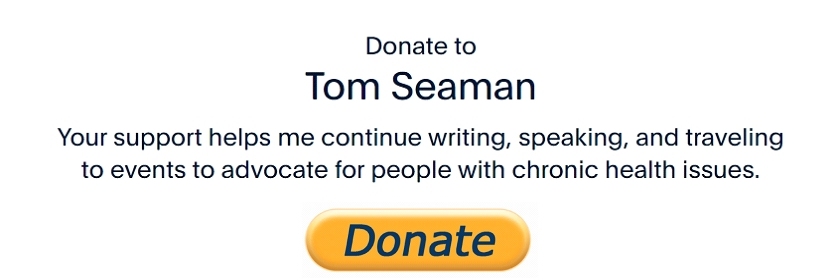Key Nutritional Advice for Diabetics Looking to Eat Healthier
Living with a chronic condition can be very difficult. Sometimes, you are dealing with physical pain or discomfort. Then, there are the tests and appointments. You also have to deal with medications, shots, or any other treatment modalities you have to undergo. Past all the medically-related worries, you also have to deal with the mental burdens of managing your condition daily at home and making health decisions.

For diabetics, one of the key changes you have to make is your diet. A good approach to nutrition helps control blood glucose and manage diabetic symptoms and associated complications.
If you are a diabetic and are finding it hard to maintain healthy eating, here are some tips and advice:

First, make sure that your diabetes is properly managed. Chronic conditions need professional assessment and supervision. Diabetes is a chronic disease where your body needs help producing or processing insulin. Your body will need medication to manage diabetes, along with lifestyle changes to control your blood glucose.
Consult your doctor for tests and medications. Make sure your prescriptions and diabetes supplies are updated. Your doctor can refer you to a dietitian or diabetic nutritionist for diet recommendations and planning. You can also look into a diabetic weight management program to help manage your diabetes by combining diabetic tracking, nutrition plans, and physical activity prompts.

An important thing in eating healthy is to know what to eat and what not to eat. There are what’s called high glycemic index foods which raise blood sugar quickly. These include sugary foods and drinks, simple carbohydrates such as white rice and bread, and processed foods.
To get a good idea about what foods have a high glycemic index, you can use a glycemic index search tool online. Avoid sugary foods and beverages such as cakes, candies, sodas, and cookies. You can do healthy swaps like eating complex carbohydrates like whole-wheat bread instead of simple carbohydrates. Prioritize healthy whole foods such as fresh non-starchy vegetables and limit processed foods.

While you are keeping away from certain foods, it doesn’t mean that you have to starve yourself. In fact, you have to eat regularly to keep your blood sugar stable and to help keep hunger at bay. There are many healthy options you can eat that can help you feel full and satisfied while keeping a handle on your diabetes.
Make sure that you are eating nutritious meals on time, and include healthy snacks. Watch your portion sizes and fill half your plate with non-starchy vegetables first. Foods that are high in protein and fiber break down slowly and help you feel fuller for longer. Pick lean protein sources such as chicken, fish, or vegetarian proteins, and high-fiber fruits and vegetables. You can also incorporate these in smoothies and drinks for variety.

Managing a chronic condition can be exhausting not only physically but also mentally. The daily decision-making, fear of hospitalization, burden of medical tasks, and even medical bills can take a toll on us. Some people with chronic conditions have experienced mental health issues such as depression or anxiety. These can make maintaining a healthy diet even more difficult.
While we cannot fully control diabetes, we can ease our emotional and mental burdens related to it to help us cope better. Seek help if you feel you are starting to feel fatigued, down, hopeless, or worried. Start practicing some stress-relieving techniques such as meditation, breathing exercises, and visualization. This way, you are more ready and positive in sticking to your diet and can better make the right food decisions.

Another option is to get more support such as peer groups or life coaching programs to help you deal with your chronic condition. You can learn coping strategies for stressors related to your diabetes or life in general. You can also learn strategies and skills for daily living, as well as for situations related to your condition. Remember that despite our chronic conditions, we can still do things to improve our quality of life and help us achieve our personal best.
______________________
 Tom Seaman is a Certified Professional Life Coach in the area of health and wellness, and the author of 2 books: Diagnosis Dystonia: Navigating the Journey and Beyond Pain and Suffering: Adapting to Adversity and Life Challenges. He is also a motivational speaker, chronic pain and dystonia awareness advocate, health blogger, volunteer for the Dystonia Medical Research Foundation (DMRF) as a support group leader, and is a member and writer for Chronic Illness Bloggers Network, The Mighty, and Patient Worthy. To learn more about Tom, get a copy of his books (also on Amazon), or schedule a free life coaching consult, visit www.tomseamancoaching.com. Follow him on Twitter @Dystoniabook1 and Instagram.
Tom Seaman is a Certified Professional Life Coach in the area of health and wellness, and the author of 2 books: Diagnosis Dystonia: Navigating the Journey and Beyond Pain and Suffering: Adapting to Adversity and Life Challenges. He is also a motivational speaker, chronic pain and dystonia awareness advocate, health blogger, volunteer for the Dystonia Medical Research Foundation (DMRF) as a support group leader, and is a member and writer for Chronic Illness Bloggers Network, The Mighty, and Patient Worthy. To learn more about Tom, get a copy of his books (also on Amazon), or schedule a free life coaching consult, visit www.tomseamancoaching.com. Follow him on Twitter @Dystoniabook1 and Instagram.



























Tom,
Do you also have Diabetes in addition to CD? I find diabetic dieticians to be a great help. along with strength training and walking.
Thanks,
Kim
Thankfully I do not also have diabetes, but I have a few clietnts who are diabetic and pre-diabetic.